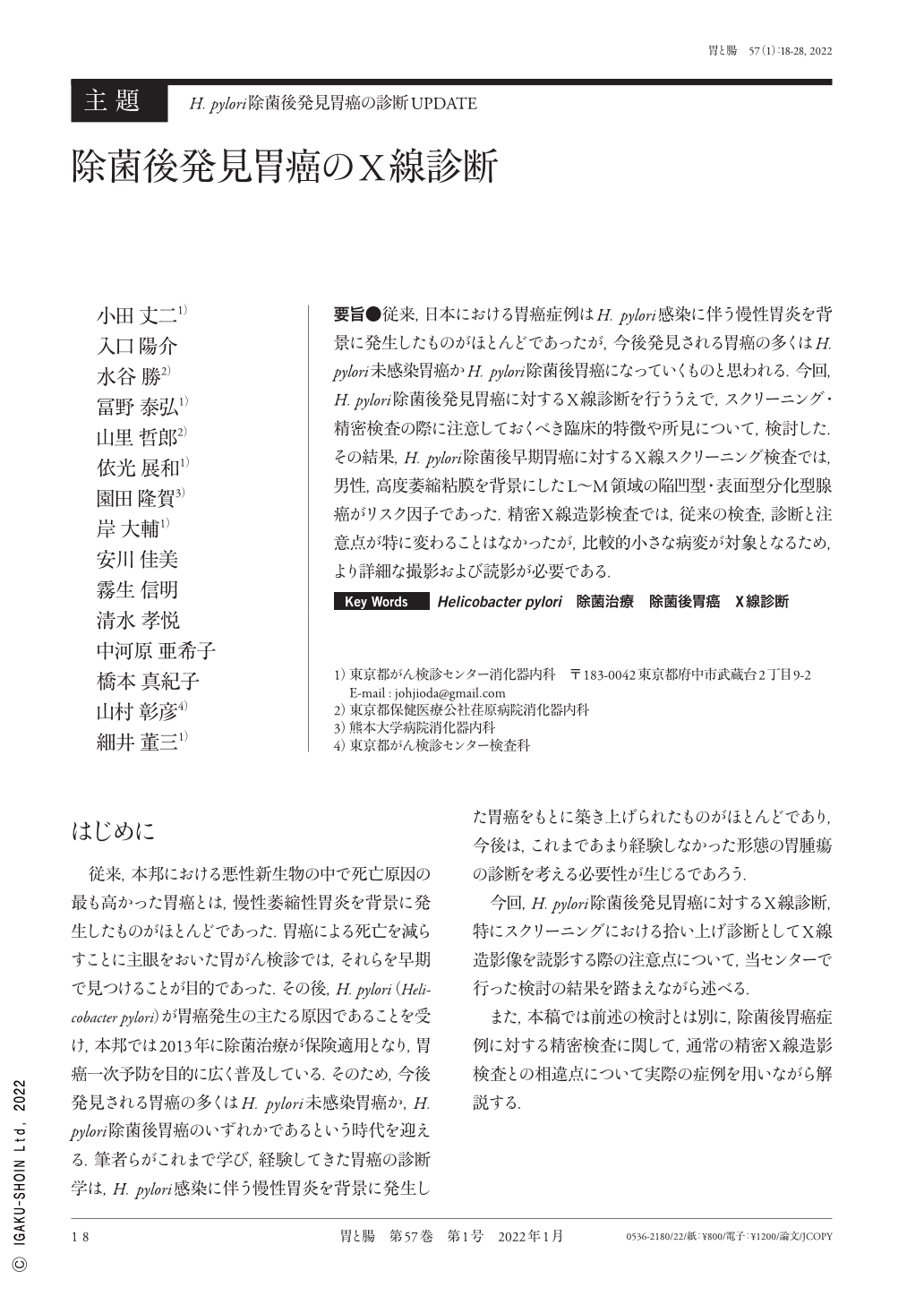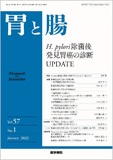Japanese
English
- 有料閲覧
- Abstract 文献概要
- 1ページ目 Look Inside
- 参考文献 Reference
- サイト内被引用 Cited by
要旨●従来,日本における胃癌症例はH. pylori感染に伴う慢性胃炎を背景に発生したものがほとんどであったが,今後発見される胃癌の多くはH. pylori未感染胃癌かH. pylori除菌後胃癌になっていくものと思われる.今回,H. pylori除菌後発見胃癌に対するX線診断を行ううえで,スクリーニング・精密検査の際に注意しておくべき臨床的特徴や所見について,検討した.その結果,H. pylori除菌後早期胃癌に対するX線スクリーニング検査では,男性,高度萎縮粘膜を背景にしたL〜M領域の陥凹型・表面型分化型腺癌がリスク因子であった.精密X線造影検査では,従来の検査,診断と注意点が特に変わることはなかったが,比較的小さな病変が対象となるため,より詳細な撮影および読影が必要である.
Previously, most gastric cancer cases in Japan were caused by chronic gastritis associated with H. pylori(Helicobacter pylori)infection. However, most gastric cancers discovered will be expected to be H. pylori negative gastric cancer or gastric cancer after H. pylori eradication. From this study, screening X-rays for early gastric cancer after eradication showed that attention should be paid to men who have depressed and differentiated adenocarcinoma in the lower-to-middle lesion with highly atrophic mucosa. Detail X-ray examination does not particularly differ from conventional X-ray examination and diagnosis ; however, it targets relatively small lesions, and thus more detailed imaging and interpretation are required.

Copyright © 2022, Igaku-Shoin Ltd. All rights reserved.


